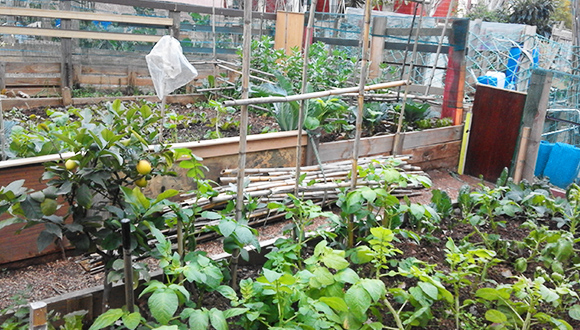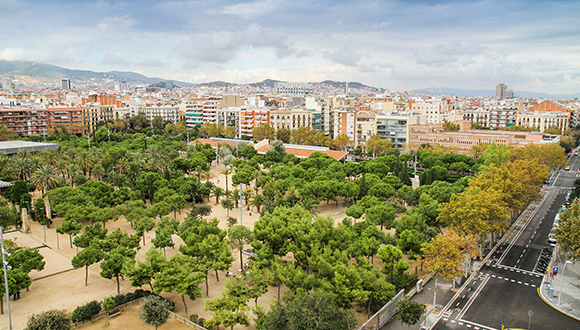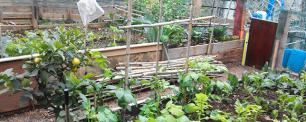Barcelona sets an example for management of green space and air quality
A report requested by the European Commission considers multiple societal changes and potential nature-based solutions. A group of European researchers helped write the report, among them CREAF ecologist Carina Basnou.

The Eklipse project, which aims to connect science and European policy, has published a report which centers on the management of the environment in urban areas. The document describes a number of different societal challenges, such as public health or work opportunities, and what solutions can be offered by nature. According to the experts who participated, Barcelona has provided good solutions for management of air quality and remodeling of the urban landscape with green spaces. Other cities highlighted along these lines included Vienna, Amsterdam, and Helsinki.
In 30 years the number of trees in Barcelona has doubled
A chapter in the report focusing on the challenge of managing air quality in urban areas praises policies adapted in Barcelona, a city which has emphasized urban greenness to address this issue. With these policies, not only air quality has improved, but the measures also support climate change mitigation. In the Catalonian capital, 36.8% of the city’s area can be considered as green space, and in 2008 153,000 trees were counted, two times the number thirty years prior. Today, the number continues to increase with approximately 235,000 trees, and 2017 will see the start of the Barcelona Treeing Master Plan (2017-2037) which proposes the introduction of a more diverse number of trees species properly chosen for climate change adaptation. According to experts, these advancements are made possible due to the existence of city management plans with specific actions, such as the plan to convert courtyards and terraces into green spaces, the creation of community gardens, and the promotion of conservation initiatives such as the Barcelona 2020 Plan for Greening and Biodiversity.
In the report’s section on city restructuring for sustainability improvements, known as “urban regeneration,” Barcelona is also shown as an example for the good use of common spaces and the connection between green spaces and social integration. Many social inclusion programs in Barcelona, of which the majority of beneficiaries are migrants or low-income families, have some interaction with community gardens. School gardens are also highlighted since these create links between children and nature, as well as the recent Empty Space Plan, an open competition for the designation and conversion of unused city spaces into urban gardens to be managed by non-profit foundations, associations, or other entities.

A report which guides science towards European needs
The study was carried out by researchers from throughout Europe, coordinated by Christopher M. Raymond from the Swedish University of Agricultural Sciences. It consists of ten chapters organized as specific challenges for research and society, including water management, air quality, participative planning and governance, public health, and management of green spaces, among others. Each of these chapters highlights which indicators should be established for proper monitoring and explains some success stories of environmental improvements.
“This reports serves as a guide for all research groups working on nature-based solutions. It sets the research agenda related to global change and urban areas which the Commission currently considers as priorities,” says Corina Basnou, adding: “when such groups decide to solicit a European Project, it is highly recommended that they pay attention to the indicators indicated in the document.”
The group of experts was selected from among more than 100 applicants
Participating in the report was completely on a voluntary basis; the call for participants was executed by the European Project Eklipse. This project aims to link scientific knowledge on biodiversity and ecosystem services with learning mechanisms and environmental policy. Special interest in this area is what prompted the European Commission to solicit the report.
More than 100 researchers sent their applications and resumés in order to participate as an expert for the report, of which only 15 were selected. The selection was carried out by balancing the sexes and including people from different branches of research and experience in the area of natural-based solutions. “I learned a lot by participating in the EKLIPSE project. We still don’t fully understand the wide range of solutions offered by nature for the large number of conflicts faced by society, not only environmental but also social and cultural,” says Corina Basnou.







